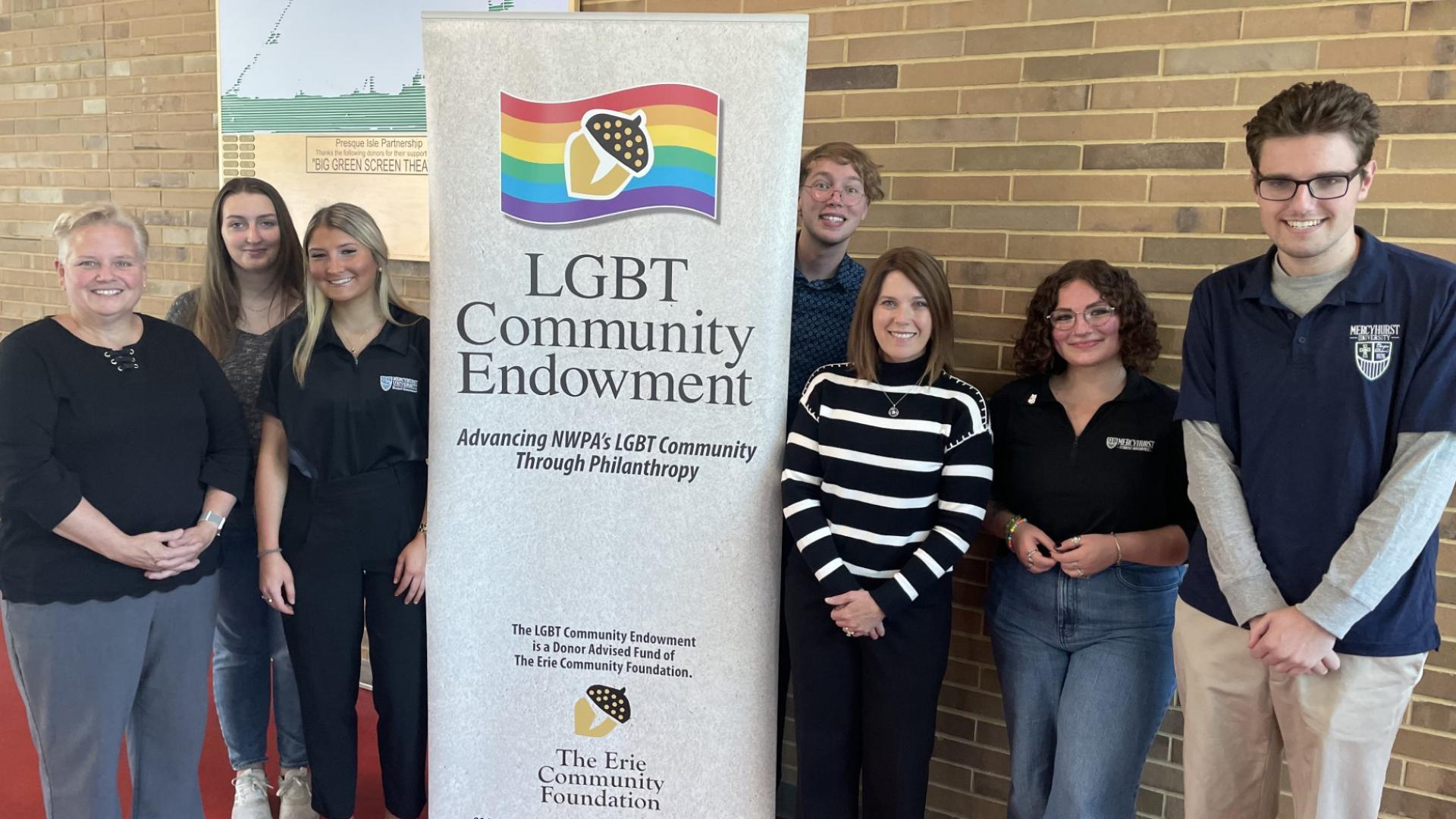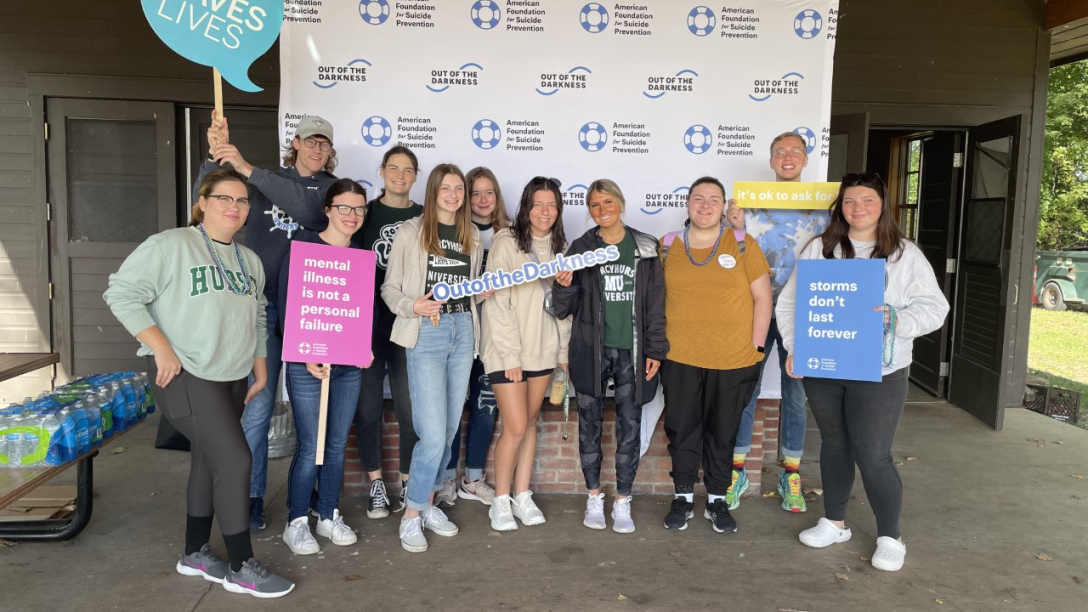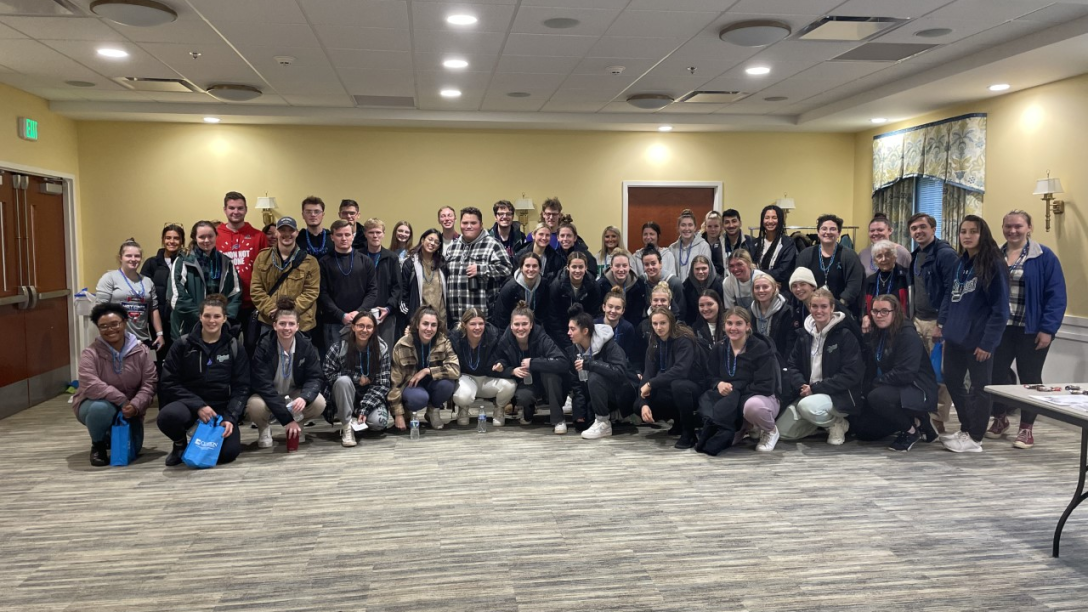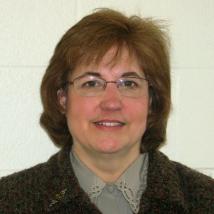
Social Work
Educate, advocate, and foster change in society.
Mercyhurst's Social Work major provides students with the opportunity to pursue their desire to make a positive difference in the world by supporting others and advocating for social change. Students explore value-based and ethical issues and build a strong foundation of knowledge and skills that effectively prepare them for advanced degrees and a broad array of social work careers. Some of the growing career paths available include school counselors, working in the medical arena, schools, criminal justice, mental health, child welfare, gerontology, chemical dependency, residential settings, and services for veterans.
A Social Work major is ideal for those that yearn to:
- Help meet the basic and complex needs of all people.
- Address the needs of those who are vulnerable, oppressed, and living in poverty.
- Advocate for social justice.
- Work with people from diverse cultural, ethnic, racial, and socioeconomic backgrounds.
- Impact change on an individual, family, group, community, and organizational level.
- Work with people in all stages of life from early childhood through older adulthood.
- Empower others to recognize their strengths, resilience, and capacity for change.
Our Social Work program, accredited by the Council of Social Work Education, offers students the opportunity to gain “advanced standing” in graduate schools; thereby reducing the amount of time required to complete a Master of Social Work degree. Our graduates are well-prepared for advanced degrees and a broad array of social work careers including school counselors, working in the medical arena, schools, criminal justice, mental health, child welfare, gerontology, chemical dependency, residential settings, and services for veterans. This program is currently not accepting new students.
Fast Facts
Our curriculum gives students a foundation in human diversity, populations at risk, human behavior and social environments, social and economic justice, social work research, social welfare and policy, and social work values, skills, and practice.
Social work students recently produced a documentary film titled, “Let It Begin with Me: Putting an End to Youth Violence in Erie” to encourage unity and dialogue in the face of violence in our community.
The social work senior seminar is an opportunity for students to discuss the challenges of their internship as well as the ethics, theory, research, and policy involved.
Studying social work combines theory with practice, giving students first-hand experience with populations often served by social workers.
- SOC 101: Contemporary Social Problems (Three credits)
- SOC 204: Cultural Differences (Three credits)
- SOC 342: Global Problems and Social Change (Three credits) OR SOCW 307: Social Work Practice I (Three credits)
- SOCW 107: Introduction to Social Work (Three credits)
- SOCW 220: Human Behavior and the Social Environment I (Three credits)
- SOCW 304: Social Welfare Analysis (Three credits)
- SOC 100: Introduction to Sociology (Three credits)
- SOC 101: Contemporary Social Problems (Three credits)
- SOC 204: Cultural Differences (Three credits)
- SOC 342: Global Problems and Social Change (Three credits)
- Three approved electives (Nine credits)
An 18-credit Social Justice minor is offered for students wishing to enhance their chosen degree program in gaining a holistic and hands-on approach to many of the injustices and societal complexities in our world today. Students in this program must maintain at least a 2.5 GPA in minor courses. The course requirements for the Social Justice minor include:
The program in Sociology maintains an educational philosophy characterized by the sharing of learning between professor and student. Students with sociological research and theoretical skills will send themselves with a critical vantage point to prepare for the emergent occupational roles our rapidly changing society is bringing forth. The department offers senior students options for a thesis, local internship, paid cooperative education placement, or Washington, DC internships.
A 21-credit Sociology minor is offered for students wishing to enhance their chosen degree program. Students in this program must maintain at least a 2.5 GPA in minor courses. The courses required for this minor are:
Learning Outcomes
- Demonstrate ethical and professional behavior
- Advance human rights and social, racial, economic, and environmental justice
- Engage:
- Anti-racism, diversity, equity, and inclusion (ADEI) in practice
- In practice-informed research/research-informed practice and policy practice
- With individuals, families, groups, organizations, and communities
- Assess individuals, families, groups, organizations, and communities
- Intervene with individuals, families, groups, organizations, and communities
- Evaluate practice with individuals, families, groups, organizations, and communities
Student Work
- Children's Services
- Health Care
- Social Welfare Research
- Community Development
- Mental Health
- Public Health
- Residential Treatment
- Social Welfare Policy
- Aging Services
- School Systems
- Public Welfare
- Substance Abuse
- Developmental Disabilities
- Consumer Advocate
- National and International Sustainability Initiatives
- Social Work Introduction
- Introduction to Psychology
- Contemporary Social Problems
- Diversity, Oppression, and Social Justice
- American Government
- Social Welfare Analysis
- Human Behavior and the Social Environment
- Social Work Policy and Social Justice
- Social Work Practice I (Individuals)
- Social Work Practice II (Groups and Families)
- Social Work Practice III (Organizations and Communities)
- Social Statistics
- Sociological Research Methods
- Fieldwork and Senior Seminar
A social work degree from Mercyhurst University is a professional degree that prepares students to work in any number of fields upon graduation.
Students who continue on to graduate school, which is the case for a majority of social work alumni, continually indicate how well-prepared they are to excel in their graduate studies. The foundation courses they take at the undergraduate level also allow them to enroll in graduate school as advanced-standing students.
Examples of areas with career paths for social workers include:
Overall employment of social workers is projected to grow 12% by 2030, much faster than the average for all occupations. Employment growth will be driven by increased demand for healthcare and social services but will vary by specialization (according to the Bureau for Labor Statistics).
Mercyhurst University’s Baccalaureate Social Work Program has been fully accredited by the Council on Social Work Education (CSWE) since 1980. Our most recent accreditation process was successfully completed in June, 2020, and our accreditation has been reaffirmed through June 2027. As a requirement of CSWE, as well as an internal evaluation of our social work program, we complete yearly assessments to determine how successful our students are at demonstrating the EPAS competency standards (Educational Policy and Accreditation Standards). View our most recent assessment results, which reports the competency benchmarks established for Mercyhurst University's Student Learning Outcomes.
The Council on Social Work Education (CSWE) is a nonprofit national association representing more than 2,500 individual members, as well as graduate and undergraduate programs of professional social work education. Founded in 1952, this partnership of educational and professional institutions, social welfare agencies, and private citizens is recognized by the Council for Higher Education Accreditation as the sole accrediting agency for social work education in this country.
Visit CSWE's website.
CSWE's Commission on Accreditation (COA) is responsible for developing accreditation standards that define competent preparation and ensuring that social work programs meet them. In accordance with the requirements of CSWE's recognition body, the Council for Higher Education Accreditation, the CSWE Office of Social Work Accreditation (OSWA) administers a multistep accreditation process that involves program self-studies, site visits, and COA reviews.
EmmaLeigh Kirchner, Ph.D.
Chair, Department of Social Justice & Community Health
Office: Preston 114
Meet the Faculty
Social Work

Maria Garase, Ph.D.
Dean, The School of Social & Behavioral Sciences; Associate Professor, Criminology & Criminal Justice

EmmaLeigh Kirchner, Ph.D.
Chair, Department of Social Justice & Community Health; Associate Professor, Criminology & Criminal Justice





